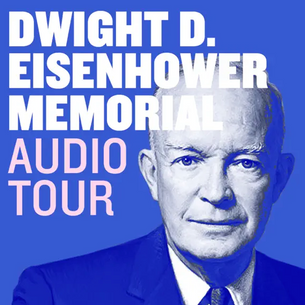How is historical scholarship defined? And what constitutes a scholarly production?
- Shannon Honl
- Nov 3, 2022
- 3 min read

Most people think of scholarship in the form of books and articles. These publications serve as channels for historians to share their research and interpretations. But is a printed medium the only form of scholarly production? If it is simply a way for researchers to share their knowledge and findings, can it take other forms? For example, historians share their expertise through museum exhibitions, documentary films, educational resources, websites, and podcasts. Could those be considered “scholarly” as well?
While there are surface differences between printed scholarship and other forms, they are actually quite similar. Think of the medium or platform as a finishing touch. Better yet, think of them like houses. All houses require a foundation, exterior walls, a roof, and a structural system to transfer the weight into the ground. Whether the house is made of wood, brick, glass, or steel, all houses share these essential foundational elements. The same goes for scholarship. But instead of footings, foundations, columns, and beams, scholarship embraces research questions, sources, methodologies, and arguments.
Books, articles, exhibits, websites, films, and podcasts are predicated on the exact same process. Divergence occurs only in the final development phase when conclusions and interpretations take different shapes to convey meaning to diverse audiences. Some results are published in textual form, while others can be graphically represented or communicated orally.
So, if the scholarly process is the same across a variety of mediums, then can podcasting be considered a form of scholarly production? For example, two scholars conduct original research on their respective topics using innovative methodological approaches. Scholar A opts to publish her conclusions in a printed monograph, and scholar B opts to convey hers via serialized podcast. Can both scholarly endeavors count toward tenure promotion?
Many institutions are reluctant to acknowledge podcasting as legitimate scholarly production. Podcasting – among other public history scholarship mediums – is perceived as what Dr. Michael Altman, a scholar of religious history, calls “academic icing on the cake of real research.” In fact, the Loyola History department is currently embroiled in this very debate.
The dispute centers on if public history production, such as podcasting, is “icing on the cake” or legitimate scholarship worthy of tenure promotion. Loyola’s history department is renowned for its public history program. Its faculty boasts seminal figures in the field, such as Dr. Patricia Mooney-Melvin and Dr. Theodore Karamanski. Yet some of their colleagues refuse to acknowledge public history scholarship as worthy of tenure promotion. This failure – to consider scholarship that has so profoundly contributed to the department’s prestigious reputation – undermines the entire discipline.
Dr. Karamanski (left) and Dr. Mooney-Melvin (right) - pioneers in the field of public history.
But people don’t like change. Asking academics to consider alternative production mediums as scholarship challenges a long-entrenched evaluation process. However, if the only difference between a podcast and a monograph is the delivery platform, how is this even debatable? As Altman points out, it may not be that straightforward. He brings up valid concerns about how to evaluate digital scholarship.
So, what would it take to put podcasting on par with books and articles? Dr. Liz Covart, a 19th-Century American historian and podcaster, notes that podcasting offers an excellent medium for targeting specific audiences, offering added interpretation, and intimately conveying an immersive story. But for scholars who want their podcasting work to be considered in a promotional evaluation, it needs to do more for the discipline. It must showcase the source base, highlight innovative methodologies, and contribute to the field of study.
This is a tall order. Is a podcast the best medium for such a heavy lift? Maybe. As podcast producer Hannah points out, it is essential to carefully define your podcast audience. She warns of trying to offer something for everyone. It’s a recipe for failure. So, if tenure scholarship depends on original research, fresh insights, and innovative methodology, the audience is not a casual listener. In fact, scholarly is too broad of a definition. The audience is most likely made of experts – peers and colleagues with the same field of interest. But does this audience listen to podcasts? Are there ways to discern the sources used and understand the methodological approach applied? Can they make judgments about the argument and process? If the scholarly podcast checks these boxes, it should qualify for tenure evaluation.
But what about scholarly podcasts for other audiences? Podcasts such as Jad Abumrad’s and Shima Oliaee’s Dolly Parton’s America, Liz Covart’s Ben Franklin’s World, or the Eisenhower Memorial Audio Tour are rooted in quality historical research practice. The difference is that these podcasts were created for general audiences outside the academy. As such, they do a different kind of historical work – interpreting for non-expert audiences. A case could even be made that public history is more widely impactful and relevant than academic scholarship. If this is the situation, the discipline is long overdue for revising what scholarly productions qualify for tenure promotion.















Thank you for bringing up the debate with Loyola's own public history program and department. That particularly situation highlights how the question of what constitutes as historical scholarship is a timely and crucial discussion. Public history as a field demonstrates that there is more than one way to communicate and engage with history. Failing to acknowledge those "non scholarly" contributions keeps the field at a stagnant point. As our culture becomes more ingrained in the digital world, it only makes sense for the history field to evolve with these changes. Although I myself am not a huge listener of podcasts, I cannot deny their significance in communicating with a wider audience and advancing the field as a whole.